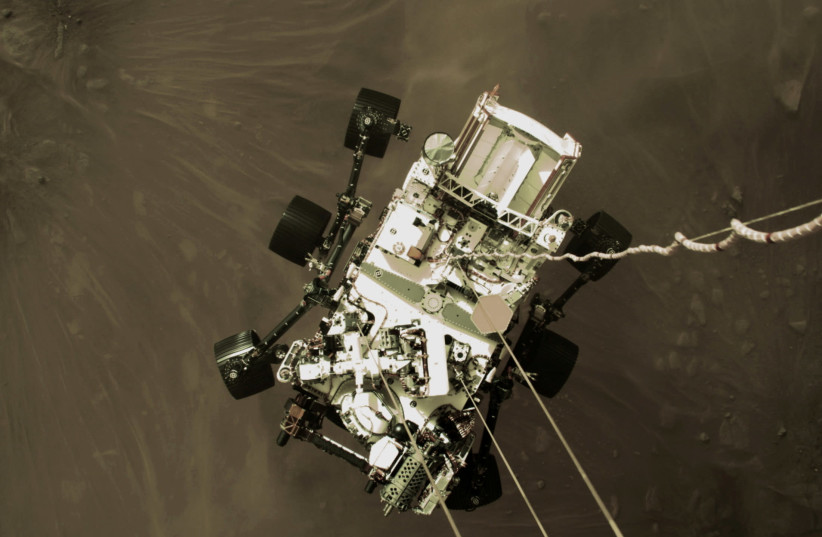NASA’s Perseverance rover recently took photos on Mars that may indicate that there was once a large and fast-moving river in the planet's past, which may also assist researchers in finding evidence of ancient microbial life in Mars' history.
The space agency initially reported this discovery on Thursday, and the report states that the river may have been "part of a network of waterways that flowed into Jezero Crater." Perseverance has been exploring the crater since its landing more than two years ago.
NASA researchers are trying to determine whether the water in this former large river had flowed in shallow streams.
How was the area discovered?
The discovery was made due to Perseverance’s Mastcam-Z capturing of the rover's hundreds of images, where it is exploring the "top of a fan-shaped pile of sedimentary rock" that has curving layers whose shape suggests the flowing of water, the space agency said. The sedimentary rock that the rover is exploring stands over 800 feet tall as a spot the agency refers to as the Shrinkle Haven. The river may have also carried large debris, according to NASA.
The data recorded "indicate a high-energy river that’s truckin’ and carrying a lot of debris,” said Libby Ives, a postdoctoral researcher at NASA’s Jet Propulsion Laboratory. "The more powerful the flow of water, the more easily it’s able to move larger pieces of material."
"The more powerful the flow of water, the more easily it’s able to move larger pieces of material."
Libby Ives

More evidence that the river may have contained fast-flowing water is due to the location of Pinestand, which is a hill that lies 0.28 miles from Shrinkle Haven, according to Space.com.
Previously, NASA's Curiosity rover made a similar discovery in late 2019 when it discovered ancient creeks in Mars's Gale Crater.
